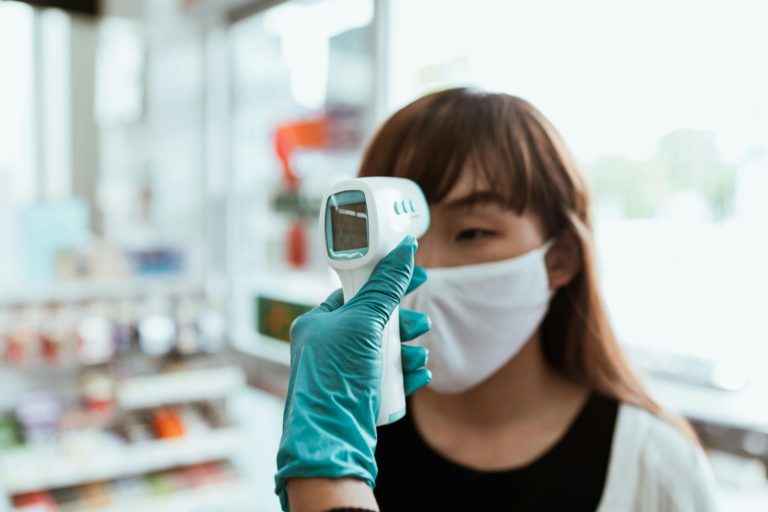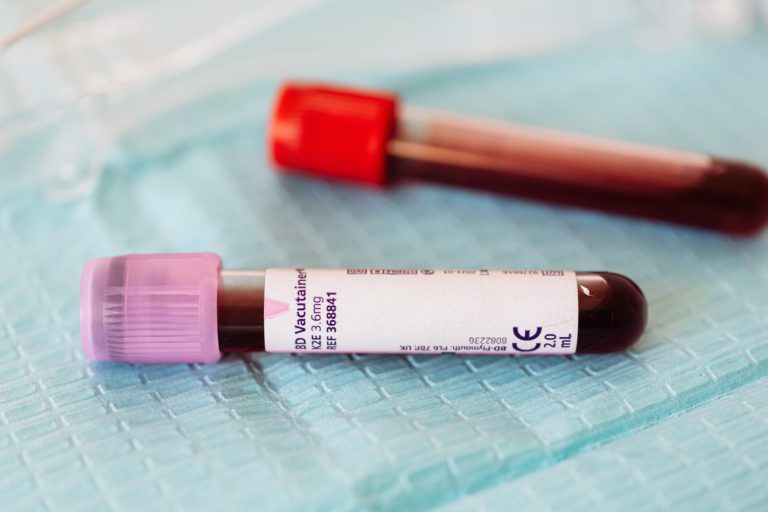
Metabolic disorders are those that affect metabolism. After being diagnosed with hypothyroidism, you may wonder: is hypothyroidism a metabolic disorder? Since hypothyroidism involves a disruption in the levels of hormones essential to metabolism, primary and secondary hypothyroidism classifies as a metabolic disorder.
The link between the hormones involved in hypothyroidism and various metabolic processes is complicated, resulting in people with the disorder presenting with many nonspecific symptoms. Continue reading to learn more about hypothyroidism, including the complex processes that cause it to affect metabolism. For more information on our Thyroid Panel test see this page here or book an appointment with Speedy Sticks today.
What is a metabolic disorder?
Metabolism, or the complex system of reactions that your body uses to convert the food you ingest into the energy you need, can be affected by many bodily organs. Any of the organs that supply a function in metabolism can become impaired, which can result in a metabolic disorder.
A common example is how the metabolic disorder known as type 2 diabetes results from an impaired function in a patient’s pancreas. Similarly, hypothyroidism is indeed a metabolic disorder that can arise from an impaired function in the thyroid..
What is hypothyroidism?
The thyroid hormones triiodothyronine and thyroxine (commonly abbreviated as T3 and T4) control many physiological processes, including metabolism. When the thyroid does not produce enough of these hormones, these processes slow or stop, impairing the patient’s life in many ways, depending on the systems affected. This is called hypothyroidism.
What are the signs and symptoms of hypothyroidism?
Due to the far-reaching bodily processes involved in metabolism, many metabolic disorders are difficult to diagnose right away, including hypothyroidism. It often presents with multiple, nonspecific symptoms that do not reveal the underlying disorder until it has reached its later stages.
When diagnosed together, these symptoms can lead a doctor on the right path towards testing for thyroid function. The symptoms most associated with hypothyroidism include:
- Unexplained weight gain or fluid retention
- Feeling colder than normal
- Tingling or loss of sensation in the feet and hands
- Depression or mood swings
- Dementia
- Hair loss, including dry hair
- Inability to sweat
- Coarse skin
- Puffy face
- Periorbital swelling (around the eyes)
- Constipation
- Menorrhagia (abnormal menstrual bleeding or bleeding that lasts more than a week)
- Slow heart rate
- Enlarged heart
- Slow speech
- Abdominal effusions (fluid buildup in the abdomen)
Due to the complex role of metabolism, this list is not comprehensive. However, multiple symptoms (particularly the rarer ones) may lead a doctor to suspect hypothyroidism as a unifying cause.
Types of Hypothyroidism, Including its Causes
Hypothyroidism has two potential presentations: primary and secondary. Primary hypothyroidism comes from thyroid disease, while secondary hypothyroidism appears with diseases in the patient’s pituitary gland or the neighboring hypothalamus.
Commonly, primary hypothyroidism results from the release of TSH (thyroid-stimulating hormone) due to an autoimmune disorder such as Hashimoto’s thyroiditis. Less commonly, therapies used to treat hyperthyroidism, such as radioactive iodine therapy, can cause a release of TSH that leads to hypothyroidism.
Medications may also cause primary hypothyroidism, including:
- Lithium
- Amiodarone
- Interferon-alfa
- Checkpoint inhibitors
- Tyrosine kinase inhibitors
- Propylthiouracil
- Methimazole
- Imatinib
- Carbamazepine
- Dopamine
- Phenytoin
- Prednisone
- Drugs containing iodine
In addition to these drugs, thyroid surgery, cranial radiation therapy, and Sheehan syndrome have also caused primary hypothyroidism.
Secondary hypothyroidism results from diseases in related systems, such as in the pituitary gland. If the hypothalamus is not producing enough TRH or thyrotropin-releasing hormone, the pituitary system cannot produce enough thyroid-stimulating hormone. The resulting imbalance can lead to secondary hypothyroidism.
How to Treat Hypothyroidism
Hypothyroidism, like many metabolic disorders, can be managed with treatment. The medication levothyroxine is on the frontline of any defense strategy against the effects of hypothyroidism. Dosing this medication (also known as Synthroid) takes the patient’s weight into account, as well as their hormone levels.
The goal of levothyroxine treatment is to raise the levels of T3 and T4 hormones back to normal levels. Your doctor will re-evaluate your hormone levels 1-2 months after beginning medication therapy to check how you are responding to the treatment and whether the dosing is correct.
After the needed adjustments, levothyroxine can be used to manage thyroid hormone levels long-term, as long as a doctor frequently evaluates these levels to make sure they are not too low or too high.
When left untreated, hypothyroidism can cause an increased risk of heart failure. A severe coma called myxedema is possible in people with severe, untreated hypothyroidism. However, most patients who have hypothyroidism respond quickly to levothyroxine.
Speak with your doctor about your symptoms to learn if you should be tested for hypothyroidism. If you are already diagnosed and are on levothyroxine, tell them if you experience any of these side effects:
- Heat intolerance
- Muscle weakness or spasms
- Chronic headaches
- Sleep problems
- Frequent hunger
- Weight loss
- Menstrual changes
- Skin rashes
- Frequent diarrhea
Test Your Thyroid With Speedy Sticks
Speedy Sticks is a mobile concierge phlebotomy service that provides at-home blood draws and on-site diagnostic/health screenings for businesses and individuals. If you wish to test your thyroid you can do so by booking an appointment and selecting our thyroid panel test.
*This content is for informational purposes only and is not meant to replace consulting with a healthcare professional. Please consult with your primary care physician or healthcare provider before engaging in any services offered by Speedy Sticks.





